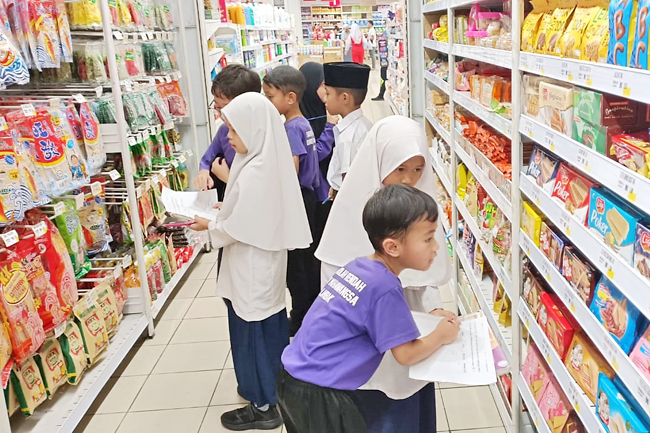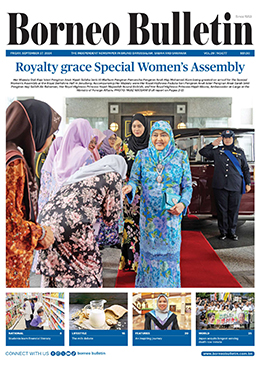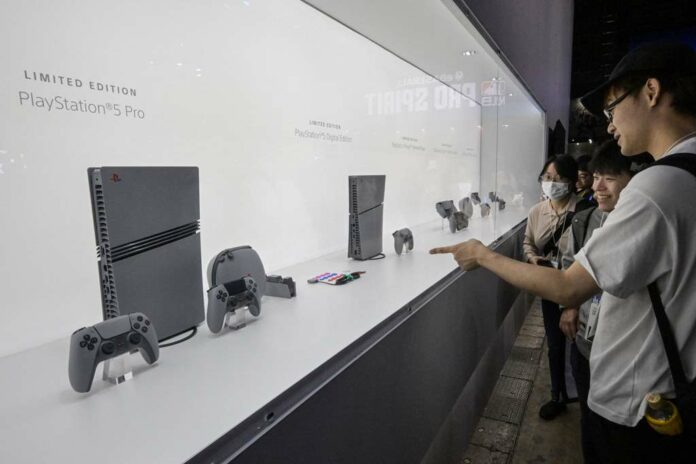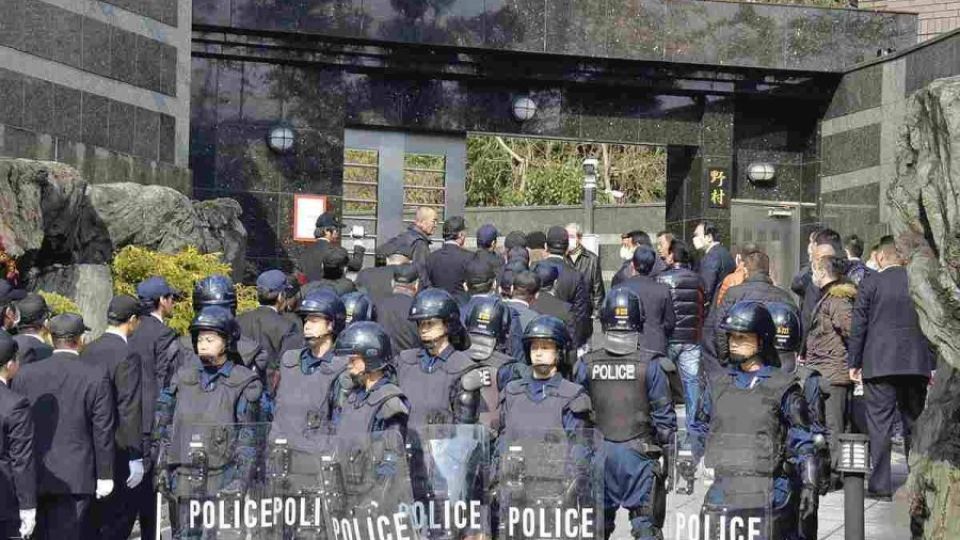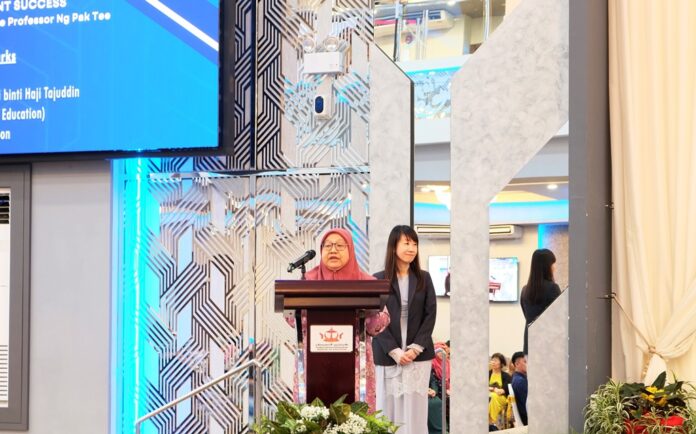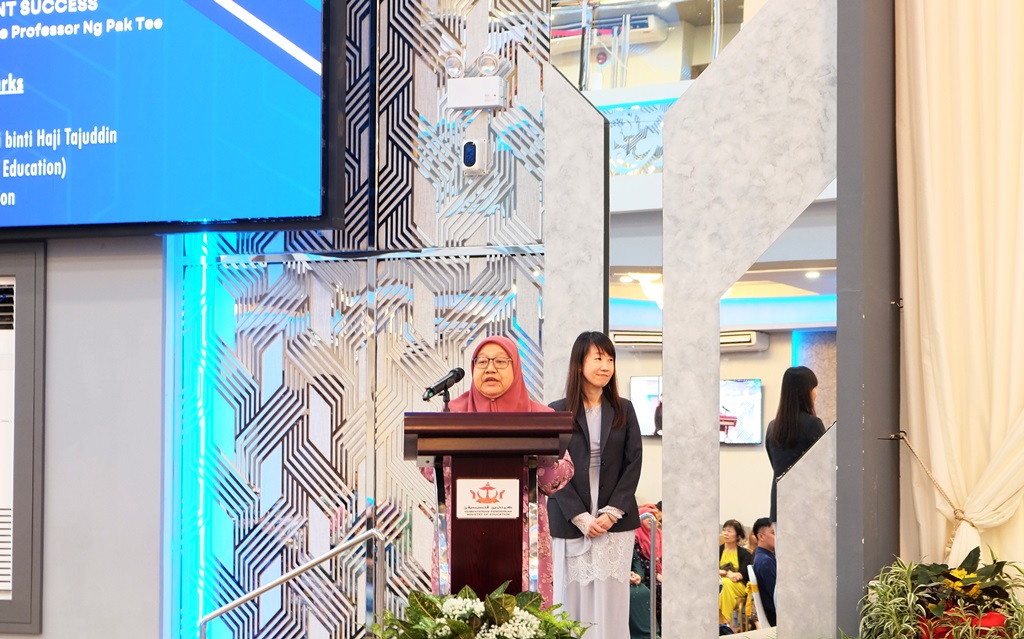Graduating from university marks the beginning of new chapters, filled with ambitions and dreams to create an impact.
Universiti Teknologi Brunei (UTB) continues to produce outstanding graduates, each with unique stories of perseverance and passion.
Here, four remarkable individuals share their insights on academic growth, their professional aspirations, and the support systems that helped them along the way.
SITI MADIHAH BINTI HAJI MOHD DON, PHD IN FOOD SCIENCE AND TECHNOLOGY
After completing her PhD in Food Science and Technology, Siti Madihah is now actively seeking career opportunities in the Sultanate. She is particularly interested in teaching at a university or participating in research projects that will enable her to grow professionally.
With the country’s expanding job market, she believes her expertise will significantly contribute to academic and research endeavours.
“I am also open to exploring roles within the food and beverage sector. The technical skills I’ve acquired during my PhD – such as data analysis, project management, and research techniques – are highly transferable across various industries. These qualities are really important for jobseekers,” said Siti Madihah.
Her passion for food science stems from her curiosity about how diet impacts health. She noted that the increasing awareness of health and wellness trends in Brunei has further fuelled her desire to explore this field, particularly in combating non-communicable diseases.
She expressed hopes to innovate solutions that promote healthier lifestyles while contributing to Brunei Vision 2035 and the global Sustainable Development Goals (SDGs).
“I intend to work in food safety, integrating various aspects of food science, including sustainability, safety, and availability.

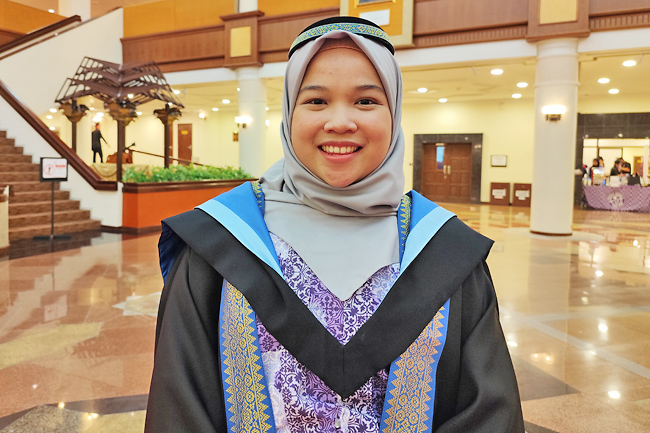
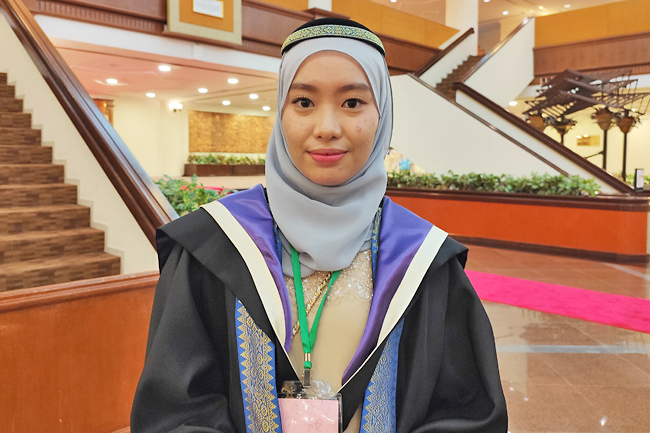
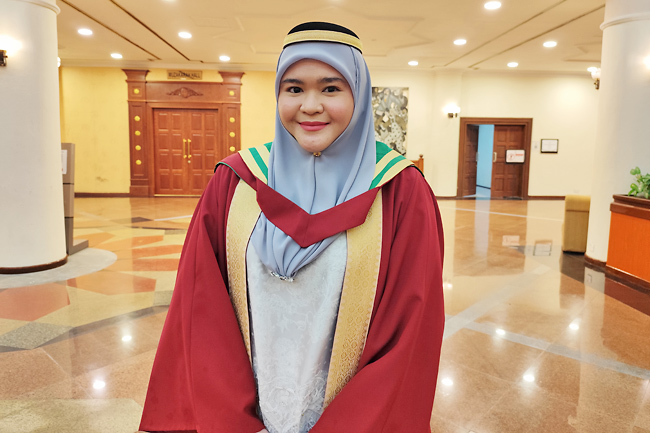
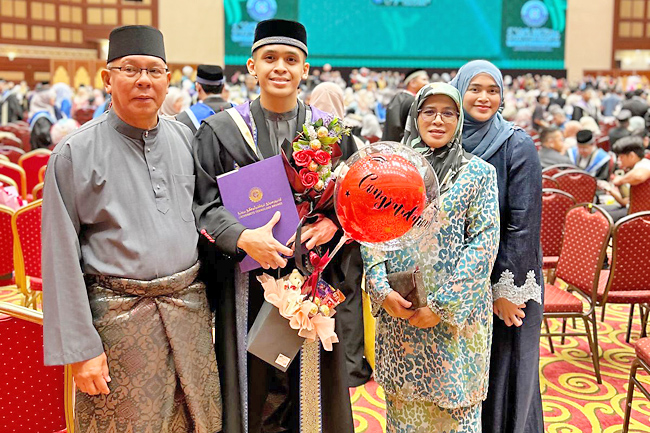
“My ultimate goal is to serve as an agent of change, positively impacting society.”
Siti Madihah’s journey to her PhD began immediately after her Master’s degree, with support from her family, friends, and supervisors. Her research is closely aligned with SDG 2, which focuses on ending hunger and achieving food security, a goal she is passionate about contributing to the benefit of both present and future generations.
NUR SYAHIRAH BINTI SALIM, BACHELOR OF BUSINESS IN FINANCE AND RISK MANAGEMENT
For Nur Syahirah, her journey at UTB was about more than academics – it was a holistic experience that helped her grow both professionally and personally.
The supportive community at the university, along with her participation in the UTB ExperiencePLUS programme abroad, allowed her to gain invaluable international exposure.
“Yes, I am eager to further my studies, particularly in banking and finance, with a strong interest in delving deeper into research,” she said.
“I believe that advancing my academic journey will enable me to contribute more significantly to the field by understanding and analysing real-world situations in the finance sector.”
Nur Syahirah’s primary professional goal is to make a meaningful impact in the finance industry, particularly through research and analysis. She aspires to become a thought leader, influencing policies that promote financial literacy and sustainable investment practices.
“My academic training has provided me with a solid foundation in critical thinking, problem-solving, and communication skills, which are essential in any career.”
Nur Syahirah also achieved her goal of graduating with First Class Honours and feels well-prepared for the next steps in her academic and professional journey.
ALIFYA KAYLA SHAFA SUSANTO, BACHELOR OF SCIENCE (FIRST CLASS HONOURS) IN INFORMATION SECURITY
As an international student from Indonesia, Alifya chose Brunei for its blend of academic excellence and natural beauty. Furthermore, UTB’s renowned research, especially in cybersecurity, attracted her to the Information Security programme.
“I chose Information Security because it’s like being on the front lines of a digital battlefield, where data integrity and privacy are paramount. My current research journey is focused on digital governance,” Alifya said.
Her aspirations include becoming a professor and researcher, advancing the field of cybersecurity through cutting-edge research and teaching the next generation of experts.
Alifya’s PhD journey is inspired by her deep sense of responsibility as the eldest daughter, with the belief that education opens doors and shapes the future.
She draws strength from her faith, citing Surah Al-Mujadalah, Verse 11 of Al-Quran, which motivates her to pursue knowledge for a higher purpose.
She shared that this verse reminds her that her efforts in education are not just personal achievements but a way to fulfil a higher purpose.
MUHAMMAD AL-HADI BIN HAJI ABDUL JAMAL, BACHELOR OF BUSINESS (HONS) IN TECHNOLOGY MANAGEMENT
Muhammad Al-Hadi found the community at the university to be one of the most rewarding aspects of his academic journey. The encouragement from his lecturers and collaboration with peers fostered a supportive environment where everyone could thrive.
“I’ve really enjoyed the supportive community at UTB. My lecturers were always encouraging and insightful, and working alongside my peers made the journey even more rewarding,” he shared.
Currently, Muhammad Al-Hadi is focused on gaining hands-on experience in the workplace, applying the skills he acquired through his studies. In the future, he is open to furthering his education, particularly if it aligns with his career growth.
“My academic training has equipped me with critical thinking and problem-solving abilities, and my projects and internship gave me hands-on experience. Alhamdulillah, I graduated with good academic results and completed several meaningful projects, providing me with a solid foundation and confidence as I move forward in my career.”
These UTB graduates are ready to take on the world, armed with the skills, experiences, and networks they’ve built during their time at the university. From food science to finance, cybersecurity to technology management, these individuals are poised to make significant contributions to their fields, both in Brunei and beyond.
As they embark on their professional journeys, their stories serve as an inspiration for current and future students, showcasing the transformative power of education and determination. – Lyna Mohammad




